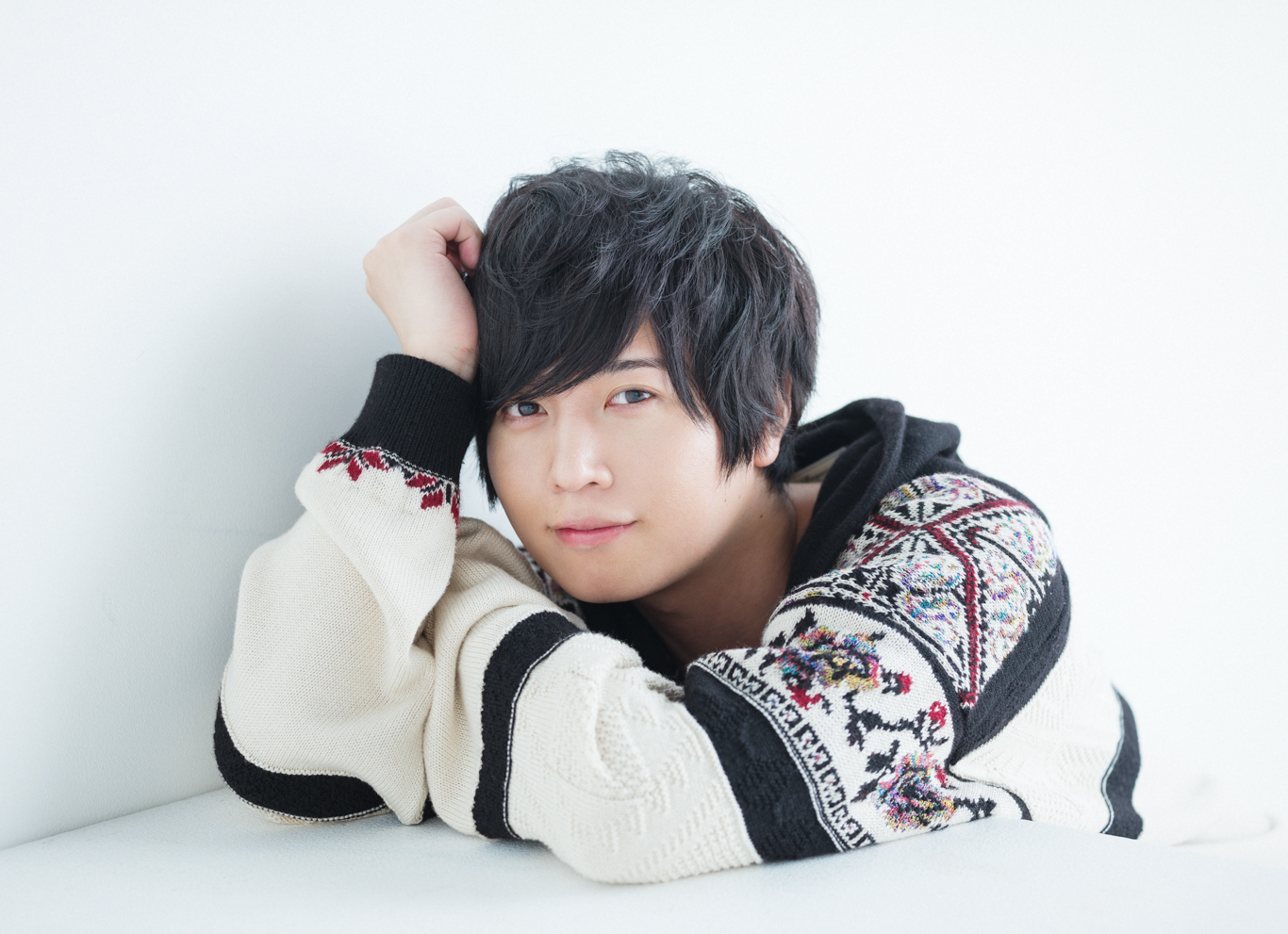
Original Article: https://news.livedoor.com/article/detail/17211623/
Published: 2019/10/15
Features:
Saito Soma (Tama in Uchitama?! ~Uchi no Tama Shirimasenka?~)
Mentioned:
Ono Kensho (Pochi in Uchitama?! ~Uchi no Tama Shirimasenka?~)
Kaji Yuki (Nora in Uchitama?! ~Uchi no Tama Shirimasenka?~)
Uchida Yuma (Beh in Uchitama?! ~Uchi no Tama Shirimasenka?~)
Maeno Tomoaki (Bull in Uchitama?! ~Uchi no Tama Shirimasenka?~)
Shirai Yusuke (Tora in Uchitama?! ~Uchi no Tama Shirimasenka?~)
Hatano Wataru (Gon in Uchitama?! ~Uchi no Tama Shirimasenka?~)
Nakajima Yoshiki
Nakao Ryusei
Saito Soma is a popular voice actor, known for roles such as Kujou Tenn from IDOLiSH7, Tsurumaru Kuninaga from Touken Ranbu, and Yumeno Gentarou from Hypnosis Mic.
He’s demonstrated his many talents over the years, beginning a music career in 2017 and releasing his first essay collection in 2018.
Coming upon his 10th year as a voice actor, he says, “There’s the ‘Saito Soma’ in quotation marks, and then there’s the normal Saito Soma. By linking the two well, I’ll be able to express myself in even more ways. I think I’ll make that my personal theme for the future.”
The image others want to see from him versus his natural self. Perhaps it’s because of that gap that he has such a wide range of expression. While reflecting on how the voice acting industry has changed him, we ask him where he is now.
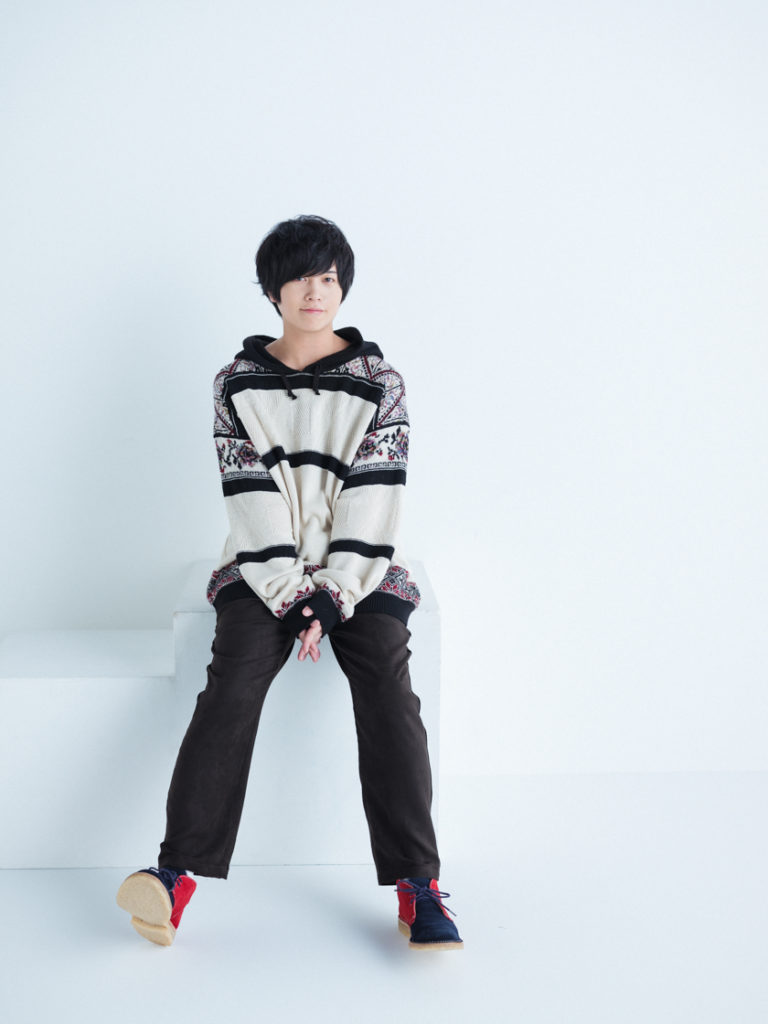
“It’s cute seeing a cat’s instinctive actions performed in human form!”
The Tama & Friends ~Uchi no Tama Shirimasenka?~ franchise began with character goods in 1983, and became loved through all sorts of media forms, ranging from manga and school exercises to picture books and anime.
The new anime Uchitama?! ~Uchi no Tama Shirimasenka?~ casts popular voice actors to familiar characters like Tama, Pochi, and Tora. We interviewed Saito Soma, who will be voicing the protagonist, Okamoto Tama.
Q: How did you feel when you got the role?
Various works these days are based off of anthropomorphization, but I was surprised that the beloved franchise Tama & Friends would become one of them. I had no idea what the anime setting would be like, so I was genuinely excited to find out.
Q: It seems that Episode 1’s recording has concluded. (This interview was conducted in August.) Did you voice your role as a cat or as a human?
It was completely as a cat. In their world, only their outer appearance is the humanized form.
I think the most unique trait of this anime adaptation is that it makes use of both the humanized forms and the actual animal forms. For Tama, the humans see him as a cat, but when he’s talking to Pochi or his other friends, they see each other in the human forms.
So, it’s important for me to keep in mind that he doesn’t follow the logical thought patterns of humans. He lives through his natural instincts as a cat.
For example, when a cat hears something, its natural reaction is to go towards the source of the sound, and that’s depicted as-is, to make it more realistic. I think that depicting those cat actions with a human form is a fun experiment.
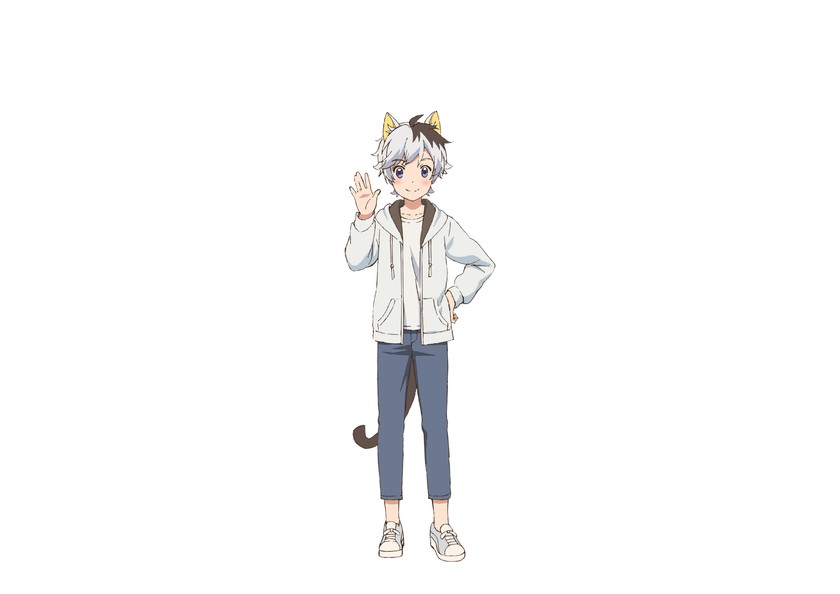
Q: So, what did you keep in mind when voicing Tama?
Instead of acting more cutely than necessary, I think it’s closer to a cat’s natural appeal to express that cuteness in ways other than my voice.
For example, in Episode 1, Tama gets lost with Pochi (CV: Ono Kensho), but despite being lost, he still goes “I’m hungry~” and eats the food at someone else’s house without asking *laughs*
Tama doesn’t try to act cute; it’s a result of his natural actions. Hopefully, the viewers will think, “Oh, you were hungry so it’s not your fault. There there.”
Q: What about becoming more cat-like?
We voice the parts when they’re in their animal forms too, but real cats don’t actually say “meow,” right? So, I prepared in advance by watching videos.
However, when it comes to animation, I’ve never thought that it was important to be true to real life. What’s more important is having “a sense” of realism.
I strive to not adopt too many real world elements, so that my own imagination won’t be inhibited.
“When I voiced the child form, Shirai Yusuke said ‘That was good, I guess?'”
Q: What was the recording session like?
It was extremely peaceful. Many of us had co-starred often before, so the atmosphere felt comfortable right from the get-go.
The cat that Kaji (Yuki)-san voices, Nora, is an intelligent and cool character, and Kaji-san went all-in on voicing him that way… but his acting was so perfect that everyone would tease him for it *laughs* Kaji-san responded to our teasing in a hilarious way, and sometimes he’d tease me and (Uchida) Yuma-kun (voice of Beh) too *laughs*
Q: Who was teasing Kaji-san–
*interjects* It was Maeno (Tomoaki)-san (voice of Bull) *laughs*
Q: And who was teasing you?
I guess it’d be Shirai (Yusuke)-kun (voice of Tora). When I voiced Tama’s child form, he said, “That was good, I guess?” *laughs*
Aside from him, there were other people like Yuma-kun, Kaji-san, and Hatano (Wataru)-san (voice of Gon) who would also crack jokes at every opportunity, and I think this harmonious recording setting will bring about good results.
Q: You have the lead role, but what was your position during recording?
While the title is Uchitama?!, it’s definitely not a Tama-centric show. It depicts the lives of the Third Street inhabitants from various angles, and the cast includes many veteran senpais, so I didn’t have to get overly fired up.
If I have to say, I guess when we’re recording separate character lines, the first to speak is often Tama. I experiment with how cute and entertaining I can go, and pass the baton to the next person.
Q: I know it’s only been one episode, but what was the input from the director?
As of now, nothing at all *laughs* The audition for this show was done by sending in voice samples, so I guess what I submitted was close to what the staff wanted.
Tama shows what he’s feeling right away, so instead of overthinking it, I felt that it’d be better to feel what he’s feeling and output it directly.
It’s an ambitious project, and I think the best part of putting it together will be seeing how far beyond people’s expectations we can take it (in a good way). The creation team is still making sure to keep Tama’s character flexible.
I think it’s great when we, as actors, incorporate our presentation ideas, developing the characters and the work as a whole with each recording session.
“The type that withdraws from excessive human interaction”
Q: Now then, if you were a cat, what kind of cat do you think you’d be?
A Somali cat… Actually, there’s a guy named Nakajima Yoshiki at my agency (81 Produce), and he told me to say Somali *laughs* “Your names are similar, so it’d be good, right?” Apparently, Somalis have a clear voice, like a ringing bell.
Q: How would you like to be raised?
I’m the type that tends to pull back from excessive human interference, so I’d prefer to only be pampered very occasionally. A moderate amount of being left alone and a moderate amount of pampering… I wouldn’t want to be taken care of like that. I have my own life, so… *laughs*
People are people, cats are cats. I believe that each has their own territory.
Q: I see. By the way, regarding your answer to the cat question, how did you and Nakajima Yoshiki-san end up talking about Somalis?
I go drinking with Yoshiki often these days. I don’t know much about cats, but he’s a cat lover, so he answered instantly. I looked up pictures and saw that they have very pretty faces, but it’s embarrassing to say that with a proud face *laughs*
Q: Do people say you’re like a cat?
Not much. Sometimes someone will say “I don’t know what you’re thinking; you’re like a cat,” but there are also people who say the opposite, that I’m like a dog. So, I guess I’m not particularly cat-like.
Q: Do you think you have the characteristics of a “cat-type boy”?
Stuff like “whimsical” might describe me, but I don’t think someone who would say “I’m a cat-type boy” would actually be a cat-type boy… right? *laughs*
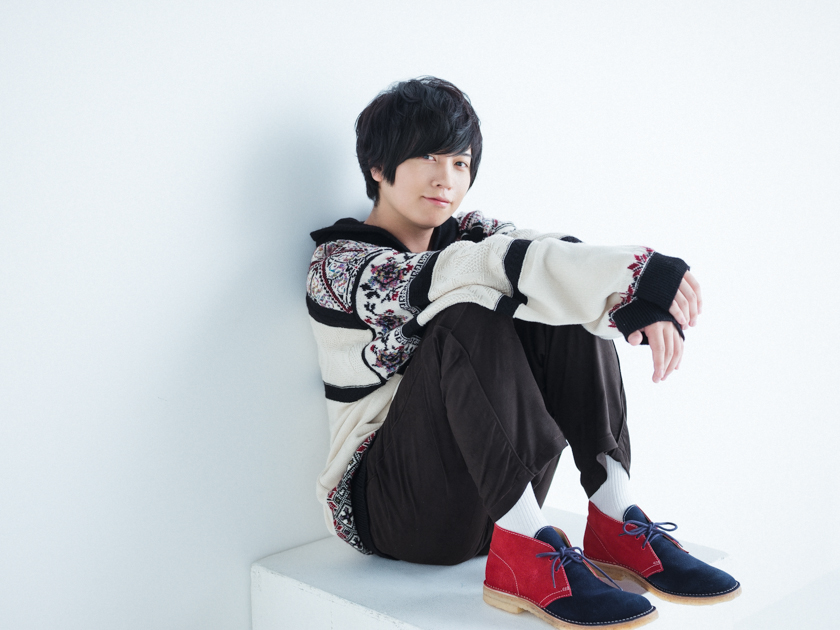
Q: Are there any books that come to mind when you think of cats? What are your recommendations, being the bookworm that you are?
I like sci-fi, and cats often appear in sci-fi works. I don’t know if it’s because a cat’s perspective of the world is sci-fi-esque, but sci-fi authors from all sorts of times and places put cats in their novels.
There are three books I’d like to recommend. The first is Kurt Vonnegut’s Cat’s Cradle. The story has nothing to do with cats, but the title relates to the game of “cat’s cradle.” It’s the first book that comes to mind when I hear the word “cat.”
The second is Robert A. Heinlein’s The Door into Summer. This one is a classic sci-fi masterpiece, and a cat appears in the story. If I recall correctly, the new translation that came out recently had the cat on the front cover too.
The third one is Akiyama Mizuhito’s Neko no Chikyuugi. It’s a light novel, but I love Akiyama-sensei’s literary style. I encourage sci-fi lovers and cat lovers to read it.
“10 years is the starting line. I want to mature more.”
Q: Next year marks your 10th year as a voice actor. Congratulations!
Thank you.
Q: You’re currently 28. When you debuted, did you have a goal to continue until you were 30?
I didn’t have a concrete goal like that, but my senpais often told me, “Keep going for 10 years. When you’ve gone for 10 years, you’ve reached the starting line.” Those words really stuck with me, and I’m nothing short of grateful for the turns of fate that allowed me to come this far.
Although I didn’t feel this way when I first debuted, right now I want to hurry up and turn 30. In life, there’s a period when youth and freshness are a strength, but ideally you should build your accomplishments and mature more. To that extent, I want to do expressions with a depth that can only be attained through years of experience… for example, by challenging a role I’ve never done before.
Q: What kind of role would that be?
Something like an older character, or an extremely powerful villain. There are a lot of things where I think, “I haven’t acted this type of character before since it wasn’t asked of me, but I’m sure I’d like it,” so I hope I run into a work that’ll allow me to output that. But in the end, our work is a collaborative effort with the creators and staff. I always value the bonds that connect us.
Q: Is there anything else you’d like to challenge in your music or writing?
For music, I released my first full album (quantum stranger) in December last year. It… wasn’t quite “Season 1”, but I feel that it wrapped up cleanly. Next, I want to present music that I didn’t try in Season 1.
For example, so far I’ve been intentionally writing orthodox songs with a verse, bridge, and chorus, but I’ve always liked songs that don’t follow that pattern. An understanding of that template will allow me to break free from it, and hopefully people will accept what I have to offer. My goal is music that’s irregular but seeps into your ears and body.
Q: How about on the writing front?
I’ve thankfully been given a lot of writing work, but I’ve always wanted to write a traveler’s journal, and I want to try it if my schedule will allow for it. I even want to spend several days exploring Europe.
I also want to write fiction, but first, I want to try expressing what I see and experience with my own eyes, as an extension of the essays I’m currently writing. Year after year, I feel that traveling has become more and more important in my life, and I want to create various works based on that.
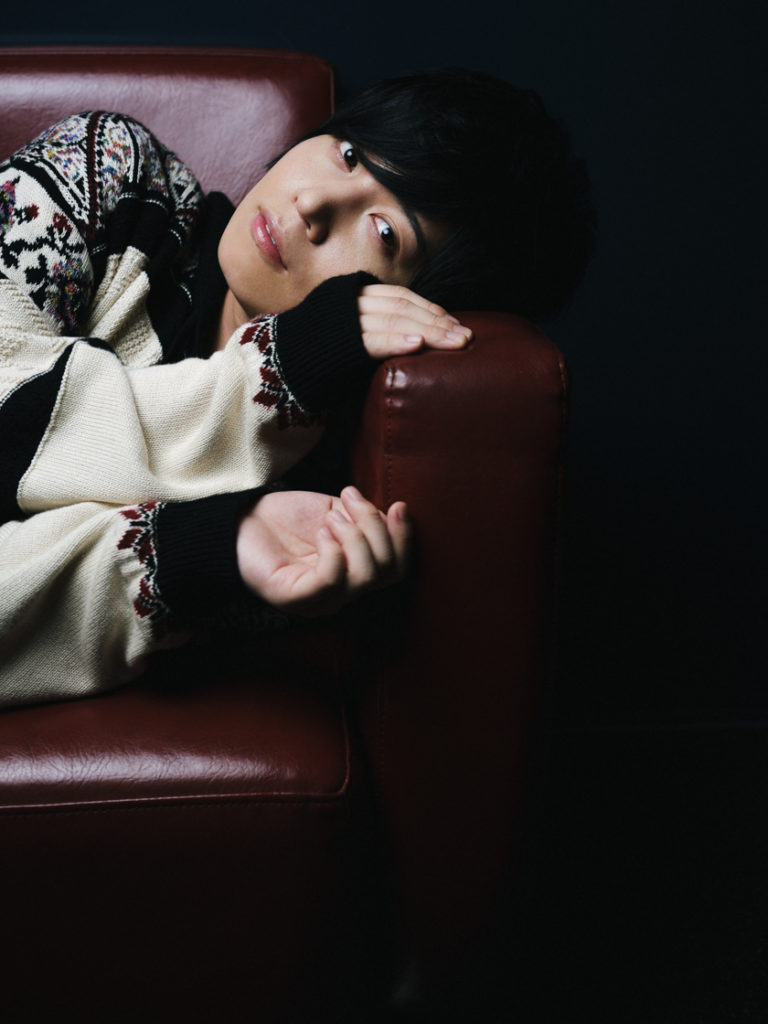
“You can’t put conditions on emotions. I want to remove the excess filters on my heart.”
Q: Have your experiences in music and writing provided feedback for your acting work?
They use different circuits, so it doesn’t quite feel like feedback.
I purposefully use music and writing to express myself differently from the voice actor Saito Soma, so I think that if I were to link the two sides, I would end up limiting my creations to an extremely narrow world. The results will be better if I don’t try to do that.
You can’t put conditions on emotions… It’s important to stop thinking things like “It’d be better to feel this way” or “I should think this way.”
There’ll be moments when I think that while acting, but for myself, composing music and writing is work where I remove those so-called excess filters on my heart. So, to me, voice acting work and creative work are two equally important wheels that I can’t function without.
Q: What about the reverse, then? Do you receive feedback from your voice acting work?
A lot. That’s also because, before I set my sights on becoming a voice actor, I already liked composing music and writing.
Working as a voice actor for so long has definitely changed my way of thinking and feeling for the better, and those changes are greatly reflected in my music and writing.
My teenage self wouldn’t have been able to write the songs I’ve released so far.
Q: I read your essay book, Kenkou de Bunkateki na Saitei Gendo no Seikatsu, but after hearing what you said, now I want to read your future essays, five or ten years from now.
Thank you. I intentionally wrote the essays in that book to be read easily and smoothly–both in literary style and content–but in the end, I think they were only read because of the existence of the “Saito Soma” in quotation marks.
On the other hand, there are so many things that the “Saito Soma” in quotation marks will never be able to express to the world, and I think that’s because I’m holding myself back… Wait, but that doesn’t mean I’m talking about anything unethical *laughs*
I feel that if I can better link the “Saito Soma” in quotation marks with the normal Saito Soma, I’ll be able to express myself in even more ways. I think I’ll make that my personal theme for the future.
“Now is the time for grounding, not pursuing ascension.”
Q: About a year ago, you spoke about the word “ascension” in interviews and whatnot, which left quite the impression.
I’ve always liked the occult and spiritual things, and “ascension” is a spiritual word referring to the soul rising to the next level.
Q: You said that “encountering this word suddenly changed [your] way of thinking; it was like [you’d] been released from [your] chains, and living became a lot easier and more enjoyable.” You also said that “when the next ascension comes, [you] want to grab onto it and accept it.” Have there been any recent developments?
Life sure is complicated. Right now, I don’t feel as “chained down” as I did during that past interview. Back then, I did feel as though life had become easier, freer. But everything has different sides to it, and now I see that there was a good side and a bad side to that state.
I think it’s probably not realistic for things to always be getting better. You take one step forward, then fall several steps back. It’s a back-and-forth cycle.
If there’ll be another moment when my heart feels set free, then that’ll happen when it happens. Right now, I’m not going to forcefully focus on pursuing ascension, because grounding (living with your feet on the ground) is important too.
Q: Did leaving that “ascended” state affect your work?
Over the years, I’ve been granted more and more opportunities to do expressive work outside of acting, such as my music and writing activities. Because of that, my thoughts are moving more and more rapidly, and there are certainly some things that I can’t create without being in an “ascended” state. For example, lyrics and melodies.
On the other hand, I’m certain that there are also expressions that also come from a “grounded” state.
Q: Not being “ascended” doesn’t mean that you’ve taken steps back, though.
Indeed, it’s not a straight path. Being able to experience things in more varied ways is important as both a voice actor and a person, so I’ve accepted that now is the time for that.
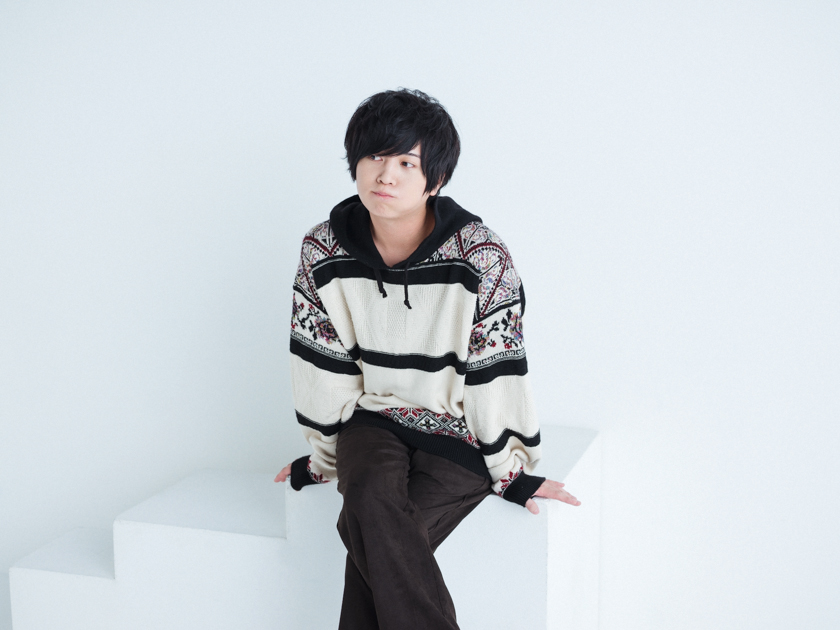
Q: Lastly, is there anything your senpais have said to you or taught you about acting that you still take to heart today?
When I was in training, I was taught by Nakao Ryusei-san, a veteran at our agency, for a year. Ryusei-san taught me detailed techniques and whatnot, but he also taught me the mental attitude to have as a person and an actor. Among that was the “wait” attitude.
For example, when you receive a script, how should you spend the days left before the recording? There’s no right answer or anything. Obviously you have to read the script and prepare, but continuing to think about it constantly is a valid approach, as is doing something completely unrelated, because sometimes hints will come to you on their own. But, you also have the option to take it easy or have sneaky thoughts.
The same goes for the recording session. How do you interpret the time when it’s not your turn? Is it simply a time when you have no lines, or should you watch your senpais’ acting and try to absorb anything you can? That one change of attitude can make that time worthwhile. It’s what he called the valuable “wait attitude.”
When you get used to work and life itself, there are times when you’ll unintentionally forget to be nervous. When that’s about to happen, I remember what Ryusei-san said and focus my mind.
Q: It’s called “wait,” but it’s actually telling you to be proactive.
Yes. I’m a bit of a contrarian, so I interpreted it in the reverse: “This isn’t standby time; it’s free time that I can use to improve myself.”
Do you lament the current situation, or do you use it to change for the better? I think it all depends on your “wait attitude,” so when painful times come, I want to value those experiences.
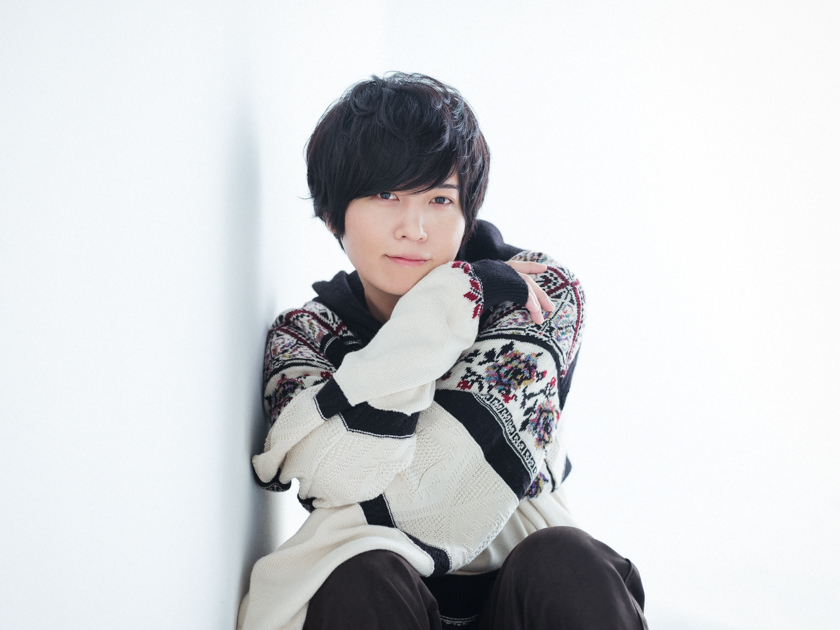
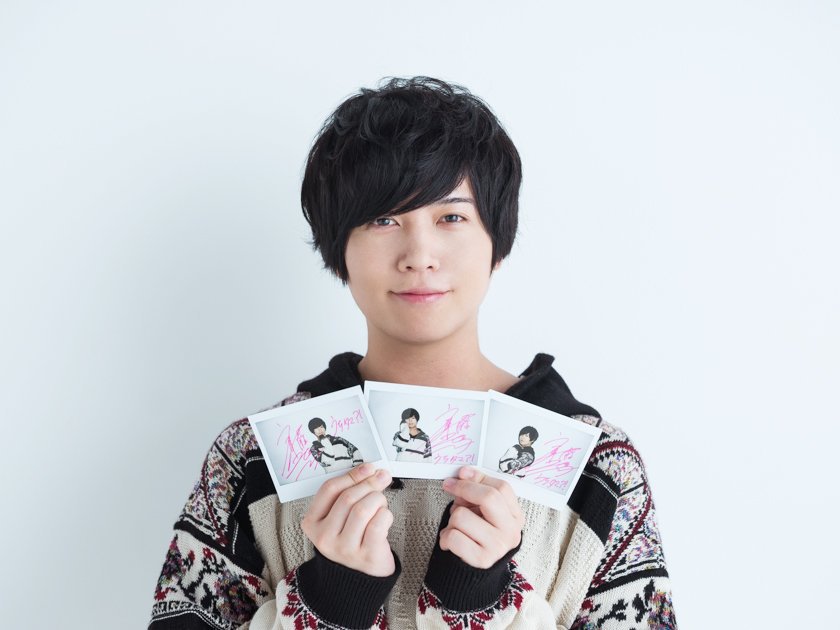
Bonus off-shot from Soma’s fashion stylist:









